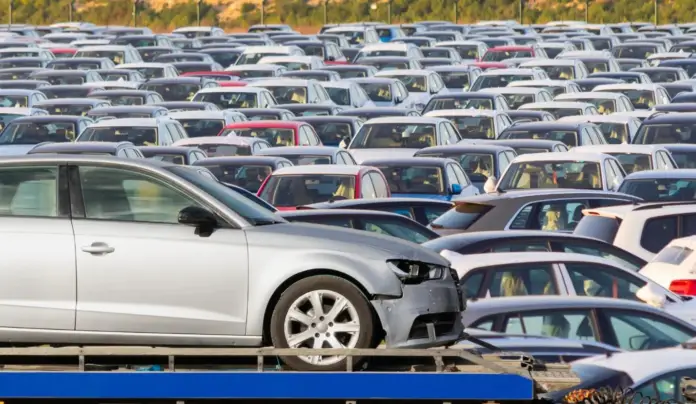To legalize “brown-colored” cars in Baja California Sur, the state government has extended the deadline. However, driving on the streets without doing so may seem like a practical option, but it carries several risks.
From fines to impoundment of the car, authorities are empowered to sanction those who drive outside the law.
What happens if you don’t legalize a “brown-colored” car in Baja California Sur?
If you own a “brown-colored” car and don’t legalize it, you could face various legal and administrative consequences. The main ones are detailed below:
- Vehicle Impoundment
Authorities have the power to impound vehicles circulating without proper documentation. Since they are not legally registered, they may be considered illegal and, therefore, subject to impounding.
- Financial Fines
Driving an unregistered vehicle can result in financial penalties. Although specific fines may vary, the risk of being sanctioned increases if you lack Mexican license plates or are not registered in the Public Vehicle Registry (REPUVE).
- Lack of Legal Certainty
By not being regularized, the owner lacks legal support proving ownership. This can cause problems in the event of accidents, sales, or any legal process related to the car.
- Restrictions on Circulation
They may face restrictions on free movement, especially during vehicle inspection operations. Additionally, they may not be admitted to environmental or safety verification programs.
- Timeframe for Regularization
The government has established programs to bring them into compliance. It is important to be aware of the established deadlines and requirements to avoid the aforementioned consequences.
To avoid these situations, it is recommended to start the process as soon as possible. You can schedule an appointment and check the requirements on the official website regularizaauto.sspc.gob.mx.
Furthermore, they must have state license plates, as driving without them can be counterproductive and even lead to a fine.
Why is it important to legalize “chocolate” cars in Baja California Sur?
Legalizing “chocolate” cars in Baja California Sur improves public safety, vehicle control, and the local economy.
By registering them with the REPUVE (Regulatory Registry of Automobile Owners), authorities can identify their owners and reduce their use in illegal activities.
In addition, it provides legal certainty to owners, prevents seizures, and facilitates legal mobility. The funds raised are allocated to public works such as street rehabilitation.
It also promotes compliance with environmental and mechanical standards and combats the illegal vehicle market, which affects those who profit from their irregular sale.
The process costs $2,500 pesos and requires presenting basic documentation at authorized locations.
What are the requirements to legalize a “chocolate” car in Baja California Sur?
The decree for their implementation was extended until September 30, 2026, as confirmed by REPUVE.
The process remains open at the five official state registration modules. It applies to 2018 or older models, with serial numbers beginning with digits 1 to 5 or the letter , and entered the country before October 19, 2021.
To complete the process, the owner must present:
Original American title or invoice
Letter under oath of truth
Governmental identification
Valid driver’s license
CURP (Customer Registration Number)
Proof of address
Payment of $2,500 pesos
In addition, the vehicle’s windshield must not be damaged.
To date, more than 37,000 cars have been registered in the state. Those interested can visit the registration offices Monday through Friday, from 8:00 a.m. to 3:00 p.m., or visit www.regularizaauto.sspc.gob.mx or call 800 737 88 33 for more information.
Specifically, the government has put a spotlight on these cars, as they have become a problem, as many fail technical inspections, meaning they may not be safe to drive.

Source: posta




